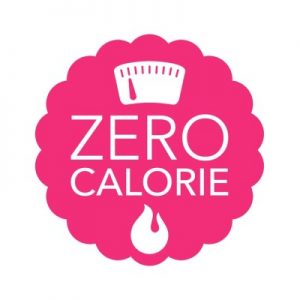Trying to watch your health (and weight) is difficult at the best of times, especially if you track every calorie in your diet.
However, calories can be found in the unlikeliest of sources, and if you’ve ever wondered ‘do vitamins have calories’, you’re not alone.
While most vitamins and minerals are calorie-free, manufacturers often add sugar, gelatin or other fillers to supplements, meaning you may be getting more calories than you realise.
In their purest form, isolated vitamins and minerals (like vitamin D and Calcium) are calorie-free, but they are often mixed with substances like oils containing calories. Therefore, you can theoretically cut all non-essential calories from your supplement regime by taking the purest form of vitamins available.
While this answers the question of do vitamins have calories, you’re probably wondering why not, since they are essential nutrients. This is because vitamins are micronutrients – which are only needed in small amounts – while the three macronutrients – fat, protein and carbs – are required in large quantities and serve as fuel for your body.
Table of Contents
Purpose of Vitamins

As we mentioned in the introduction, vitamins are essential nutrients that your body requires for a variety of biological functions. Without vitamins, your body would be unable to properly fight off infection, heal wounds or maintain cells, resulting in a variety of symptoms far more unpleasant than a few extra pounds.
Vitamin deficiencies can have severe consequences, ranging from hair loss to (in extreme circumstances) death, so getting enough vitamins is essential for your health.
For example, vitamin D deficiencies (which affect roughly 1 billion people worldwide) cause fatigue, bone loss and anxiety, so you should worry less about ‘do vitamins have calories’ than making sure you get enough vitamins.
Are Vitamins and Minerals Calorie-Free?

Most vitamins and minerals are calorie-free in their purest forms, so if your supplements do contain calories, it’s likely because of additional ingredients. As a general rule, supplements in pill form don’t contain calories (because they have very few added ingredients), though other types of supplements can contain a surprising amount of calories.
Contrastingly, gummy or chewable supplements tend to have calories from added ingredients like sugar and gelatin, so the answer to do vitamins have calories is yes for gummies.
However, even if you’re taking sugary multivitamins, the calories provided by vitamins are minimal and probably won’t affect your diet in any noticeable way.
Do Vitamins Make You Gain Weight?

The short answer is no: vitamins do not directly cause weight gain because they contain minuscule amounts of calories or none at all. Even when considering supplements like fish oil which are high in fat, you would have to eat an absurd amount to get enough calories to affect your weight, so it is clear that supplements do not directly cause weight gain.
Although the question of do vitamins have calories is complicated by sugary supplements, it’s clear that they don’t have anywhere near enough calories to cause weight gain on their own.
For example, one sugary brand of gummy multivitamins contains 14 calories per serving, while the USDA recommends we eat around 2,000 calories for women and 2,600 for men per day.

Do Chewable Vitamins Have Calories?
While many chewable vitamins do have calories (due to added sugar, flavorings or bulking agents), many don’t, thanks to zero-calorie sweeteners such as stevia and aspartame. Ultimately, the question of do vitamins have calories all depends on the added ingredients and manufacturing process used to create supplements.
RELATED: Read our blog on Gummy Vitamins Vs Pills to learn more about the pros and cons of different forms of vitamins.
Fortunately, it’s easier than ever to find calorie-free chewable vitamins, thanks to the increasingly widespread use of zero-calorie sweeteners, flavorings and bulking agents.
Furthermore, all dietary supplements are legally required to put nutritional information – including calories – on the packaging of all dietary supplements, so finding out do vitamins have calories should be as simple as reading the label.
Do Centrum Vitamins Have Calories?
Centrum is one of the most popular supplement brands in the USA and offers a wide variety of multivitamins designed to support your nutritional needs. Their core range includes supplements aimed at men, women, children and those over 50, with most containing zero or little-to-no calories, meaning they definitely won’t interfere with your calorie counting.
Of the main range of Centrum supplements, only the gummy products stated that they contained calories on the label, so the answer to do vitamins have calories is mostly ‘no’ when it comes to Centrum. If your main requirement for multivitamin supplements is that they don’t contain any calories, then most of Centrum’s range is suitable for you.
Centrum Background
You may also be interested to know that Pfizer – the world’s largest pharmaceutical company – owns the Centrum brand and were once pressured to remove misleading claims from Centrum vitamins by the Center for Science in the Public Interest (CSPI).
Pfizer also has the dubious claim to fame of setting records for the largest health care fraud settlement in history ($2.3 billion in fines, penalties and settlement for illegal marketing claims) in September 2009.
Critics of Pfizer claim that their Centrum range is made with cheap, synthetic forms of vitamins and fails to deliver many of the health benefits it claims, though multivitamin supplements should only be used to support a healthy lifestyle.
While Pfizer could do more to answer the question of do vitamins have calories (it was difficult to find dietary information for many products online), their Centrum range is affordable and suited to a wide range of nutritional needs.
Conclusion
Vitamin supplements are a great way to boost your intake of essential nutrients and provide vitamins that you would otherwise struggle to get through your diet, but they do have some drawbacks. Certain forms of vitamins – notably gummy and chewable vitamins – contain added ingredients that add sugar and calories to something that would otherwise be considered entirely healthy.
For many people, added sugar is a fair price to pay for better-tasting supplements (especially kids and fussy eaters), but you should keep asking yourself do vitamins have calories when choosing supplements.





